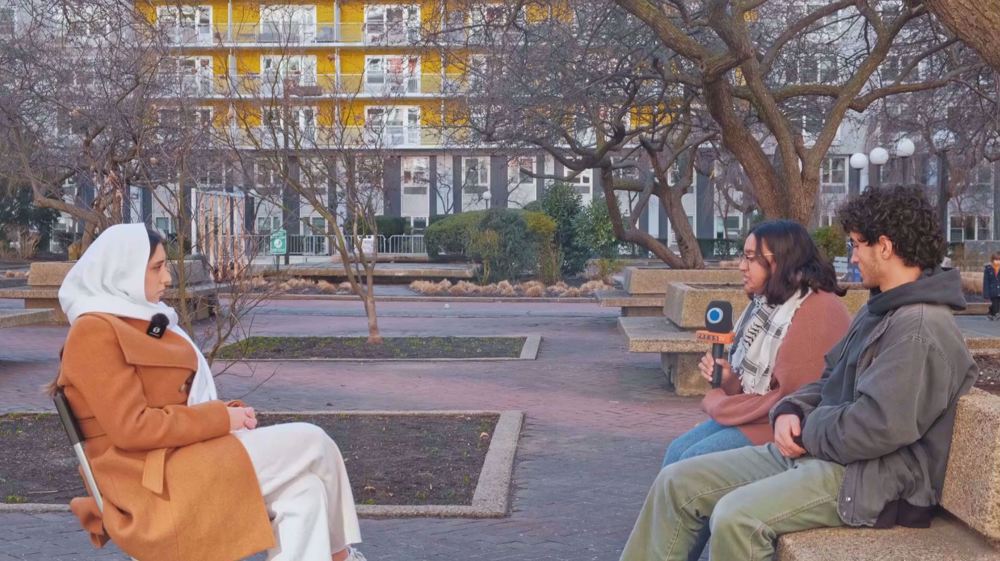West eyes South Sudan oil industry: Analyst
Press TV has conducted an interview with Abayomi Azikiwe, editor of Pan-African News Wire in Detroit, to discuss the ongoing violence in South Sudan.
What follows is a rough transcription of the interview.
Press TV: Well there seems to be no end in sight to the bickering between South Sudan’s president and rebel leader. What is going on in South Sudan and what is at stake if the two sides don't put aside their differences and help restore peace in the country?
Azikiwe: There is a lot at stake both for the West as well as for the African continent. It was the United States along with its western allies that it pushed for many years for the partition of the Republic of Sudan. Now since they are two countries since 2011, still has not resolved the internal problems.
The eruption of violence in December 2013 stemmed from unresolved issues that have gone back many years in South Sudan who was a split within the ruling Sudan’s People Liberation Movement and Army. Riek Machar, who was the former vice president, is now in the New York City at the United Nations. The African Union held talks over the weekend to try to bring about some form of implementing the peace agreement which was signed last month. The President Salva Kiir did not attend the United Nations General Assembly. He spoke via a video streaming technology.
So the differences are still there. There has been fighting in Unity State over the last several days. As you mentioned there are accusations on both sides in regard to violating the ceasefire agreement.
Press TV: Well, there were reports of the UK deploying troops to Somalia and South Sudan to help restore peace in that area. How much do you think foreign players have a role in the whole conflict?
Azikiwe: They were instrumental in supporting the Sudan’s People Liberation Movement in its fight over many years to break away from Sudan which is the largest geographic nation state prior to the partition four years ago.
They do not want South Sudan to disintegrate because South Sudan is the product of US and western foreign policy in Central Africa. Also both the Republic of Sudan in the north and the Republic of South Sudan in the south are oil producing states and that there is a lot at stake for the western oil companies who want to of course have a stake in the South Sudanese oil industry. China also is heavily involved in both the Republic of Sudan in the north as well as the Republic of Sudan in the south.
So it is an international conflict. It has regional dimensions. The Intergovernmental Authority on Development, IGAD, the East African regional organization has been working now for nearly two years to bring about some type of political settlement. So it can be done but both sides have to thoroughly commit themselves to a cessation of hostilities and there needs to be an intensified international monitoring mechanism. The African Union could be involved in that. They are going to release a report any day now, it has been reported that deals with a lot of the atrocities that have been committed in South Sudan since December of 2013. The report has been held up for several months. This report could lead to the formation of a hybrid court to deal with the crimes committed during the war. So there is a lot at stake for both the domestic as well as international players in this conflict.

The price we paid for freedom

ICC's arrest warrant for Netanyahu to worry Western politicians: Former British diplomat

Former FBI agent criticizes US Congress for 'outright corruption'
VIDEO | Paris protesters condemn Gaza genocide and Israel’s land grab policy
Cargo flight route launched from Iran’s Rasht to Moscow
Iran urges ‘coordinated’ move to end Israeli, US crimes in region
Iran president felicitates Muslim nations on Eid al-Fitr, urges enhanced unity
Israeli army plans to wipe out refugee camps from occupied West Bank
Israel kills 20 in Gaza on Eid al-Fitr, mostly women, children
Sea-based economy: Missing link in Iran’s development
US behavior will determine if 'indirect talks' can move forward: Iran president






 This makes it easy to access the Press TV website
This makes it easy to access the Press TV website